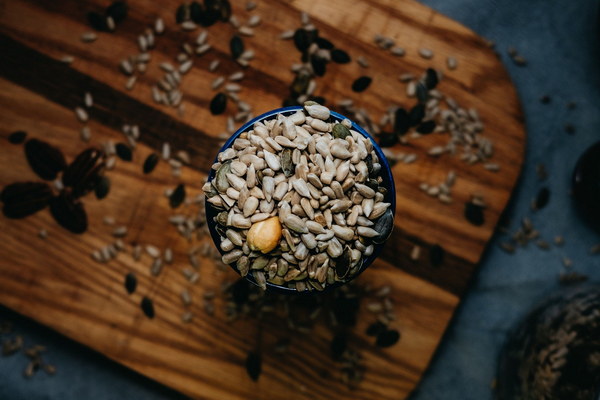Navigating Hypertension A Doctor's Guide to Body and Lifestyle Adjustments
Hypertension, or high blood pressure, is a common condition that affects millions of people worldwide. It is often referred to as the silent killer because it can progress without noticeable symptoms until it causes serious health complications. However, with the right adjustments, you can effectively manage hypertension and improve your overall health. Here, we delve into a doctor's guide to body and lifestyle adjustments for those dealing with hypertension.
Understanding Hypertension

Firstly, it's essential to understand that hypertension is a chronic condition characterized by elevated blood pressure, which is the force of blood against the walls of your arteries. The goal of hypertension management is to lower blood pressure to a level that reduces the risk of heart disease, stroke, and other complications.
Lifestyle Adjustments
1. Diet:
- DASH Diet: The Dietary Approaches to Stop Hypertension (DASH) diet is a heart-healthy eating plan that focuses on fruits, vegetables, whole grains, lean protein, and low-fat dairy while reducing salt, saturated fat, and cholesterol.
- Reduce Sodium: Excessive salt can lead to increased blood pressure. Aim for no more than 2,300 milligrams of sodium per day, and even less if you have hypertension.
- Increase Potassium: Foods rich in potassium can help lower blood pressure. Examples include bananas, oranges, leafy greens, and potatoes.
2. Exercise:
- Regular physical activity can significantly lower blood pressure. Aim for at least 150 minutes of moderate aerobic exercise or 75 minutes of vigorous aerobic exercise each week, along with muscle-strengthening activities on two or more days a week.
3. Weight Management:
- Excess weight can contribute to hypertension. Losing even a small amount of weight can make a difference. Consult with a healthcare provider for personalized weight loss strategies.
4. Limit Alcohol and Avoid Smoking:
- Excessive alcohol consumption can raise blood pressure. Limit your intake to moderate amounts, and if you smoke, quit. Smoking can damage blood vessels and increase the risk of heart disease.
5. Stress Management:
- Chronic stress can raise blood pressure. Techniques such as meditation, deep breathing, yoga, or other relaxation exercises can help manage stress levels.
Body Adjustments
1. Medications:
- Your doctor may prescribe medications to help manage your blood pressure. These can include diuretics, ACE inhibitors, angiotensin II receptor blockers (ARBs), calcium channel blockers, beta-blockers, and alpha-blockers. It's crucial to take these medications as prescribed and to discuss any side effects with your healthcare provider.
2. Regular Monitoring:
- Keeping track of your blood pressure readings is essential. Your doctor can guide you on the frequency of monitoring and what readings you should aim for.
3. Follow-Up Appointments:
- Regular follow-up appointments with your doctor are crucial to assess the effectiveness of your treatment plan and make any necessary adjustments.
Conclusion
Living with hypertension requires a comprehensive approach that includes lifestyle changes and, in some cases, medication. By following a doctor's guidance and making these adjustments, you can effectively manage your hypertension and reduce your risk of cardiovascular diseases. Remember, it's never too late to start making positive changes to your health. Work closely with your healthcare provider to create a tailored plan that suits your needs and lifestyle.









